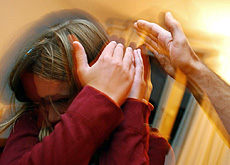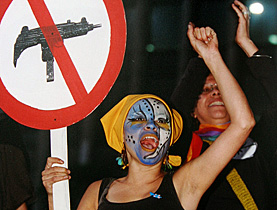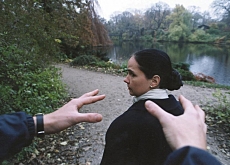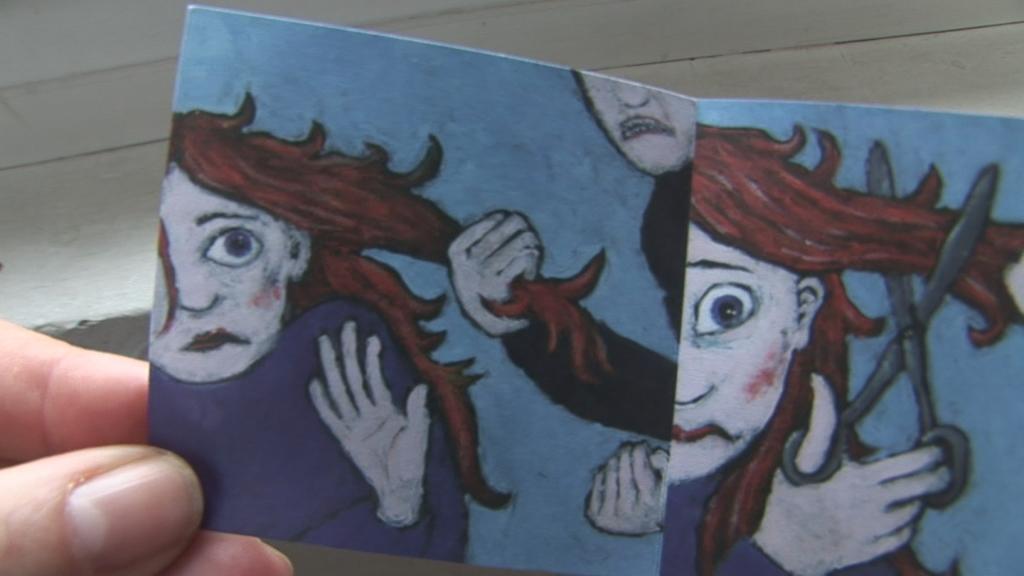Shelters for battered men open their doors

By the end of this week, German-speaking Switzerland will have its first two homes for battered men, highlighting a social problem often mired in taboo.
While women remain the largest victims of abuse between the sexes, both homes target men who have suffered physical or psychological violence from a spouse, often during a divorce or separation.
The first shelter, “Zwüschehalt” – “stopover” in Swiss German – opened on Thursday in a village near the city of Aarau, in northwest Switzerland. The second opens on Saturday in Erlenbach, on the shore of Lake Zurich.
The opening of Zwüschehalt, the exact location of which is being kept from the public, coincides with International Human Rights Day.
“This is obviously not a coincidence,” said Olivier Hunziker, president of VeV, an association that promotes responsible parenting and is funding the shelter.
It can accommodate up to ten people for varying periods up to two months in theory. Men can receive advice and practical assistance until they figure out what to do next.
Cornered
Both homes are independent of one another and are designed primarily for men who, from one day to the next, have lost homes and families after separation.
“In fact, we do not distinguish between cases of difficult separations and cases of violence,” Hunziker said. “All victims have the right to come.”
Hunziker himself is a divorced father who has joint custody over his children with his ex-wife. He says many men are stuck on whether to return home for the sake of the children. “We know how conflict situations can escalate,” he said.
The director of the Erlenbach shelter, André Müller, was subjected to violence from his ex-companion. “Except for slapping, I had not been physically abused,” he said. “I had however suffered extreme psychological abuse.”
Müller does not consider a slap to by physical violence. This perception is typical, say observers. “Men see violence differently,” Hunziker said.
Ashamed to speak
Elsbeth Aeschlimann, director of a counseling service in Zurich that works with male victims of violence, says men are more isolated, at least socially, than women.
“In cases of domestic violence, a man who dares to speak about his problems is often misunderstood,” she said. “Others tell him he should be able to ‘deal with it’ and he feels even more discouraged and belittled.”
According to Hunziker, “people often only understand if there is physical violence. Moreover, when police arrive at the scene of a dispute and they are not sure about a situation but it’s clear they need to separate a couple, they usually turn to the man.”
Six per cent
Cornelia Kranich, co-director of the Zurich cantonal office of intervention against domestic violence, says this is not the case.
“The principle is the same in all cases: the one who hits must leave. We apply it with consistency, even if it is sometimes complex when children are involved.”
She said she’s still rather puzzled by the figures provided by VeV on violence by women against men: 39 per cent of domestic violence cases in St Gallen, 25 per cent in Zurich, 20 per cent in Basel and 19 per cent in Fribourg.
“Out of 1,625 police interventions for domestic violence in 2008, men filed a complaint against their companions 25 per cent of the time,” Kranich said. “But out of 1,065 protective measures taken by the police – restraining orders and/or forbidding someone from going home for 14 days – 67 have been taken against women, or six per cent of cases.”
A lack of room
Both Kranich and Aeschlimann welcome the creation of shelters for men.
“To make a place available for them to talk and seek advice is an excellent thing,” Aeschlimann said. “That also helps to remove the pressure they face – pressure that can also, sometimes, push them to violence.”
“It is definitely positive that such shelters are emerging but on a private basis,” Kranich said. “Do not forget that shelters for women are in dire need of more room and that the cases they’re taking on are more and more serious.
“I saw a man seriously injured once,” she added. “Women, on the other hand, are often severely beaten.”
For Aeschlimann, it’s important to leave behind the cliché of the “nice woman, evil man” without going to the opposite extreme. “Male victims are where women were 20 years ago. They must fight for recognition of their suffering.”
Ariane Gigon, swissinfo.ch, in Zurich (Translated from French by Tim Neville)
Zwüschehalt, the first shelter for battered men, opened on December 10 near Aarau.
VeV, an association for responsible upbringing, is financing the centre with about SFr10,000 ($9,750) per month.
The home can accept up to ten men and children. It is open to victims of domestic violence as well as men who are leaving their home during a separation. The shelter works with local police.
Another shelter, only for divorced men, opens on December 12 in Erlenbach on the shore of Lake Zurich.
The homes are independent of each other. There are 17 shelters for women in Switzerland and they are overcrowded.
Violence by women against men is a taboo phenomenon that remains relatively unknown. In the canton of Zurich, 6% of the 1,065 restraining orders issued in cases of domestic violence in 2008 were for women who attacked men.
The figures should be interpreted with caution because the number of complaints is not equivalent to the number of restraining orders placed against men, Zurich authorities say.
“We start from the idea that there is a large grey area,” says Elsbeth Aeschlimann, head of a Zurich counseling office.

In compliance with the JTI standards
More: SWI swissinfo.ch certified by the Journalism Trust Initiative




You can find an overview of ongoing debates with our journalists here. Please join us!
If you want to start a conversation about a topic raised in this article or want to report factual errors, email us at english@swissinfo.ch.